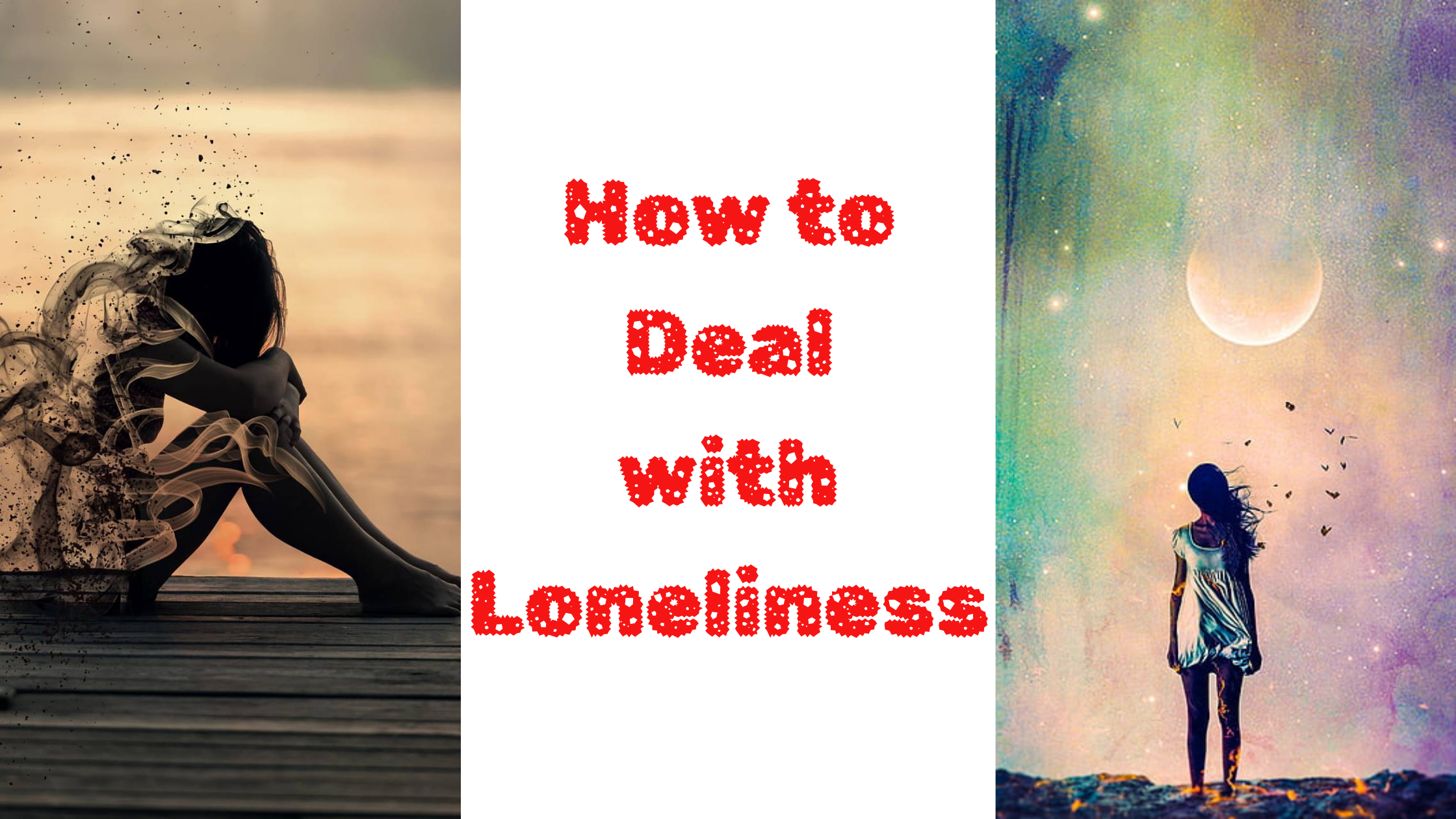Let’s face it, feeling lonely or loneliness is a part of the human experience. Whether it’s a temporary dip after a life change or a more persistent feeling, we’ve all been there. The good news is, you don’t have to navigate these feelings alone. There are many things you can do to cope with loneliness and cultivate meaningful connections in your life.

Table of Contents
ToggleIntroduction
Loneliness is an incredibly common human experience. Whether it’s due to life transitions, a lack of strong social ties, or other circumstances, it can feel overwhelming and isolating. While loneliness is a normal emotion, it’s essential to have tools in place to deal with it healthily. Building strong connections and finding ways to overcome loneliness can make a world of difference in your overall well-being.
While technology connects us globally, social isolation and loneliness are on the rise. This feeling of disconnection can be incredibly difficult, impacting our mental and physical well-being. However, it’s important to remember that you are not alone.
This guide offers practical strategies and insights to help you deal with loneliness and cultivate meaningful connections in your life.
Understanding the Cope with Loneliness
Loneliness isn’t just about being alone. It’s a complex emotion characterized by a lack of social connection, feelings of isolation, and a longing for belonging. It can manifest in various ways, including:
- Social Anxiety: Feeling uncomfortable or awkward in social situations.
- Difficulty Trusting Others: Struggling to form and maintain close relationships.
- Negative Self-Talk: Holding critical beliefs about yourself, leading to low self-esteem.
- A Sense of Emptiness: Feeling a void in your life despite the presence of others. OR
Understanding Loneliness
Loneliness isn’t simply being alone. It’s the feeling of being disconnected from others, lacking meaningful relationships, or feeling like you don’t belong. It can manifest in different ways, including:
- A sense of emptiness or isolation
- Difficulty making new friends or building strong connections
- Social anxiety or feeling out of place
- Negative self-talk and low self-esteem

Here are some Empowering Strategies to Cope with Loneliness
Let’s dive into practical ways to combat those lonely feelings and foster meaningful relationships:
1. Acknowledge and Accept Your Feelings
Loneliness, a feeling of isolation and disconnection from others, can be an incredibly difficult experience. It’s easy to bottle up those emotions, feeling ashamed or judged. However, the first step in cope with loneliness is simply acknowledging and embracing those feelings.
Here’s why acknowledging and accepting your feelings are crucial:
- Suppressing emotions only amplifies them. It’s like putting a lid on a boiling pot – the pressure builds, and eventually, it explodes. Accepting your loneliness allows you to process it healthily.
- Judgment intensifies the pain. When we judge ourselves for feeling lonely, it adds another layer of negativity on top of the existing burden. Accepting your emotions without judgment allows for self-compassion, a vital tool for healing.
- Ignoring the problem won’t solve it. Loneliness won’t magically disappear if you pretend it doesn’t exist. Acknowledging your feelings is the starting point for identifying the root of the problem and taking steps to address it.
How to Acknowledge and Embrace Your Feelings:
- Give yourself permission to feel: Tell yourself, “It’s okay to feel lonely right now.”
- Name the emotion: Label your feelings as “loneliness,” “isolation,” or “disconnection.”
- Validate your experience: Remind yourself that loneliness is a common human experience and doesn’t define you.
- Practice self-compassion: Offer yourself the same kindness and understanding you would offer a close friend struggling with loneliness.
2. Focus on Existing Relationships
While venturing out and building new connections is an essential part of overcoming loneliness, don’t underestimate the power of nurturing existing relationships. Often, the people closest to us can be a valuable source of support and a powerful antidote to loneliness.
Here are some ways to focus on existing relationships and strengthen your support system:
- Reach out and reconnect: Make a conscious effort to connect with friends, family, even acquaintances you haven’t spoken to in a while. A simple phone call, text message, or even a handwritten note can show you care and open the door to deeper conversations.
- Schedule quality time: Plan to spend quality time with loved ones. Enjoy a meal together, watch a movie, go for a walk, or engage in an activity you both enjoy. This dedicated time fosters deeper connection and strengthens bonds.
- Practice active listening: When interacting with loved ones, truly listen and be present. Pay attention to what they’re saying, offer support, and avoid interrupting. Active listening shows genuine interest and strengthens emotional connection.
- Express appreciation: Let your loved ones know how much they mean to you. A heartfelt compliment, expression of gratitude, or simply saying “I appreciate your friendship” can go a long way in strengthening your connection.
- Be vulnerable: Share your feelings of loneliness with trusted friends or family members. Sharing vulnerability fosters intimacy and opens the door for them to offer support and understanding.
Remember, nurturing existing relationships is a two-way street. Be supportive, show genuine interest in their lives, and actively participate in maintaining connections. By strengthening the bonds with your existing support system, you can create a sense of belonging and combat loneliness more effectively.

3. Explore Your Passions and Interests
Feeling lonely can often lead to a sense of stagnation and a lack of motivation. However, exploring your passions and interests can be a powerful tool in dealing with loneliness and fostering connection. Here’s why:
1. Increased Engagement and Joy: When you engage in activities you genuinely enjoy, it brings a sense of fulfillment and boosts your mood. This positive energy can be contagious, making you more approachable and open to connecting with others.
2. Shared Interests Create Opportunities for Connection: Participating in activities related to your passions provides a natural way to meet people who share similar interests. Whether you join a book club, take a dance class, or volunteer for a cause you care about, shared interests create a common ground, spark conversation, and foster a sense of belonging.
3. Building Confidence and Self-Esteem: Engaging in your passions and developing new skills can lead to a sense of accomplishment and boost your confidence. When you feel good about yourself, it’s easier to connect with others authentically and build meaningful relationships.
4. Expanding Your Social Circle: Stepping outside your comfort zone and trying new things can expose you to new communities and individuals you might not have otherwise met. This can broaden your social circle and increase your chances of finding genuine connections.
Here are some ways to explore your passions and interests:
- Reflect on your hobbies and interests, even if you haven’t pursued them in a while.
- Look for local groups, clubs, or classes related to your passions. Utilize online resources or ask friends and family for recommendations.
- Consider volunteering for a cause you care about.
- Take a class or workshop to learn a new skill related to your interests.
- Join online communities or forums focused on your hobbies.
Remember, exploring your passions and interests is not about achieving perfection; It’s about embracing activities that bring you joy and create opportunities for connection. By taking action and stepping outside your comfort zone, you can experience personal growth, discover new interests, and find yourself connecting with others who share your passions. This journey can be incredibly rewarding and a powerful tool in dealing with loneliness.
4. Embrace New Experiences and Step Outside Your Comfort Zone:
Loneliness can often lead to a tendency to stay within our comfort zones, isolating ourselves further. However, taking the leap and embracing new experiences can be a powerful antidote. By stepping outside your comfort zone, you open yourself to new possibilities, forge unexpected connections, and ultimately, combat loneliness.
Here’s how:
1. Unlock New Opportunities: Stepping outside your comfort zone opens doors to new experiences, people, and communities you might not have encountered otherwise. Trying new things can be exhilarating, broaden your horizons, and spark unexpected joys.
2. Foster Personal Growth: Embracing challenges and venturing into the unknown allows you to learn new skills, build resilience, and gain valuable life experiences. This personal growth fosters self-confidence and makes you a more interesting and well-rounded individual, ultimately enhancing your ability to connect with others.
3. Discover Shared Interests: By trying new activities and venturing into uncharted territory, you may discover unexpected passions and interests. These shared interests can then become bridges to connect with others who share your newfound enthusiasm.
4. Challenge Negative Self-Talk: Loneliness can often be intertwined with negative self-talk and limiting beliefs. Stepping outside your comfort zone allows you to challenge these limiting thoughts and replace them with a sense of capability and confidence. This shift in mindset empowers you to connect with others more authentically.
Here are some ways to embrace new experiences and step outside your comfort zone:
- Start small: Begin with manageable challenges that push you slightly outside your comfort zone, gradually increasing the difficulty as you gain confidence.
- Identify your fears: Acknowledge what scares you about stepping outside your comfort zone and actively challenge those fears with logic and positive self-talk.
- Seek support: Enlist a friend or family member to join you in trying something new. Having someone by your side can provide much-needed encouragement and make the experience more enjoyable.
- Join a social event: Attend workshops, community gatherings, or local meetups related to your interests. This provides a safe space to meet new people while exploring new activities.
- Volunteer for a cause you care about: Volunteering allows you to step outside your usual circle, connect with people who share similar values, and gain a sense of purpose.

5. Prioritize Self-Care and Well-being:
Loneliness can drain your energy and motivation, making it even harder to connect with others. Therefore, prioritizing self-care and well-being is crucial in your journey to deal with loneliness. While connecting with others is vital, taking care of yourself forms the foundation for building healthy connections and fostering a positive outlook.
Here’s how self-care contributes to overcoming loneliness:
1. Enhanced Mood and Energy Levels: Engaging in self-care practices like getting enough sleep, eating healthy foods, and exercising regularly improves your mood, energy levels, and overall well-being. This positive energy makes you more approachable and open to interacting with others.
2. Increased Resilience: Taking care of yourself physically and emotionally strengthens your resilience and ability to cope with challenges, including feelings of loneliness. A strong foundation allows you to approach social interactions with more confidence and optimism.
3. Cultivation of Self-Love and Self-Compassion: Self-care is about treating yourself with kindness and respect. This includes accepting your emotions, acknowledging your strengths and weaknesses, and practicing self-compassion. By caring for yourself, you send a message of worthiness to yourself and others, creating a foundation for healthy and authentic connections.
4. Improved Self-Awareness: Engaging in mindful activities like meditation or journaling can help you become more aware of your thoughts, feelings, and needs. This self-awareness allows you to identify triggers for loneliness and develop coping mechanisms to address them effectively.
Here are some self-care practices to prioritize:
- Ensure adequate sleep: Aim for 7-8 hours of quality sleep each night.
- Fuel your body with nutritious foods: Eat a balanced diet rich in fruits, vegetables, whole grains, and lean protein.
- Engage in regular exercise: Find physical activities you enjoy, whether it’s walking, running, swimming, or dancing.
- Practice relaxation techniques: Activities like deep breathing, meditation, or yoga can reduce stress and promote feelings of calm.
- Engage in hobbies and activities you enjoy: Schedule time for activities that bring you joy and a sense of fulfillment.
- Connect with nature: Spending time outdoors can improve your mood and reduce stress levels.
Remember, prioritizing self-care isn’t selfish; it’s necessary. By taking care of yourself, you invest in your well-being, allowing you to deal with loneliness more effectively, build stronger connections with others, and live a more fulfilling life.
6. Embrace the Power of Meditation and Me-Time:
While building social connections is critical in overcoming loneliness, it’s equally important to prioritize me-time and cultivate a healthy relationship with yourself. This includes embracing the power of meditation and other practices that foster self-reflection, relaxation, and inner peace.
Here’s how these practices contribute to dealing with loneliness:
1. Fostering Self-Awareness and Acceptance: Through meditation and introspection, you gain a deeper understanding of your thoughts, emotions, and reactions. This self-awareness allows you to identify and challenge negative thought patterns that might contribute to loneliness, leading to greater self-acceptance and a more positive outlook.
2. Reducing Stress and Anxiety: Feelings of loneliness are often intertwined with stress and anxiety. Meditation and mindful practices like deep breathing can effectively calm the mind and reduce negative emotions, making you feel more centered and open to connecting with others from a place of peace and clarity.
3. Enhancing Self-Compassion and Connection with Yourself: When you prioritize me-time and engage in activities like meditation, you create space for introspection and self-compassion. This allows you to connect with yourself on a deeper level, fostering a sense of inner peace and self-love. This positive self-regard translates into your interactions with others, allowing you to build more authentic and fulfilling connections.
4. Building Resilience in Facing Loneliness: Through consistent meditation practice and mindful activities, you develop a stronger sense of self-awareness and emotional regulation. This empowers you to navigate the inevitable challenges of life, including feelings of loneliness, with greater resilience and a sense of calm.
Here are some ways to embrace the power of meditation and me-time:
- Practice meditation: Start with short periods (5-10 minutes) using guided meditations or simply focusing on your breath.
- Engage in mindful activities: Practices like yoga, journaling, and spending time in nature can promote mindfulness and self-awareness.
- Schedule “me-time”: Dedicate time each day to activities you enjoy, whether it’s reading, listening to music, taking a relaxing bath, or pursuing hobbies.
- Disconnect from technology: Set aside time to unplug from your phone and social media. This allows you to truly disconnect from external distractions and connect with yourself on a deeper level.
Remember, embracing the power of meditation and me-time is not about avoiding social interaction. It’s about creating a healthy balance between the outward and inward aspects of your life. By nourishing your inner world, you cultivate a stronger foundation for building meaningful connections and experiencing a greater sense of well-being, both individually and within your relationships.

7. Remember, You Are Not Alone:
Loneliness, while a challenging and isolating experience, is something millions of people worldwide grapple with. It’s crucial to remember throughout your journey – you are not alone. This powerful reminder can serve as a source of strength and comfort as you navigate your path towards overcoming loneliness and building meaningful connections.
Here’s why remembering you’re not alone is essential:
1. Combats Feeling Isolated: Loneliness often amplifies the feeling of being isolated and disconnected, making it seem like you’re the only one struggling. Recognizing that many others share your experience can ease the sense of isolation and provide a sense of solidarity.
2. Provides Comfort and Encouragement: Knowing countless individuals have successfully overcome feelings of loneliness can offer hope and inspire you to continue your journey. Their stories can serve as a source of encouragement and reinforce the belief that you can too, cultivate a fulfilling and connected life.
3. Nurtures Self-Compassion: When you recognize that loneliness is a common human experience, it becomes easier to approach yourself with kindness and understanding. This self-compassion is vital in fostering resilience and empowering you to navigate challenges with greater strength.
4. Opens the Door to Connection: Recognizing the prevalence of loneliness can open your eyes to potential connections you might have previously overlooked. Sharing your experiences with others who understand can lead to unexpected friendships and a sense of belonging.
Here are some ways to stay connected and remember you’re not alone:
- Talk to a trusted friend or family member. Sharing your feelings can be incredibly helpful in reducing the sense of isolation and fostering support.
- Join a support group: Connecting with others who understand what you’re going through can provide invaluable support and a sense of belonging.
- Seek professional help: Therapists can offer guidance, equip you with coping mechanisms, and help you navigate the underlying causes of your loneliness.
- Connect with online communities: Joining online forums or groups related to overcoming loneliness can provide a platform to connect with others and share your experiences.
- Volunteer in your community: Helping others can boost your sense of purpose and connection to the community.
Remember, overcoming loneliness isn’t a sprint; it’s a marathon. By implementing the strategies outlined in this guide, seeking support when needed, and reminding yourself you are not alone, you can build resilience, cultivate meaningful connections, and experience a more fulfilling and connected life.
Conclusion:
Loneliness, though challenging, doesn’t have to be your reality. This guide has provided you with tools to navigate its complexities and chart your course towards a life enriched by connection and meaning.
Remember, the journey starts with acknowledging and accepting your feelings. Embrace strategies like nurturing existing relationships, exploring passions, and stepping outside your comfort zone. Don’t neglect the importance of self-care and me-time to build a strong foundation for connection.
Most importantly, never forget: you are not alone. Seek support from loved ones, communities, or professionals when needed. As you embark on this path, remember to celebrate your progress, no matter how small.
Embrace the transformative potential of this journey. With patience, self-compassion, and a willingness to grow, you can cultivate meaningful connections, experience the joy of belonging, and create a fulfilling life filled with love and happiness.
Thank You !












Thanks for sharing. I read many of your blog posts, cool, your blog is very good.
Thanks for sharing. I read many of your blog posts, cool, your blog is very good.